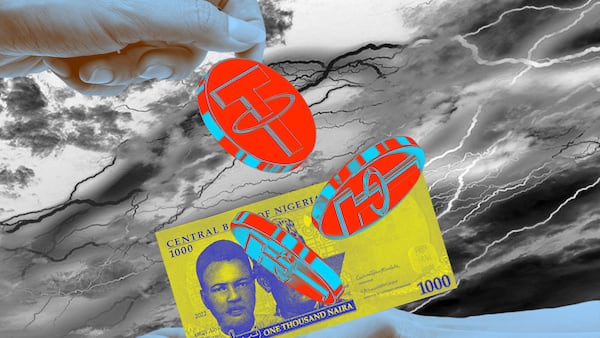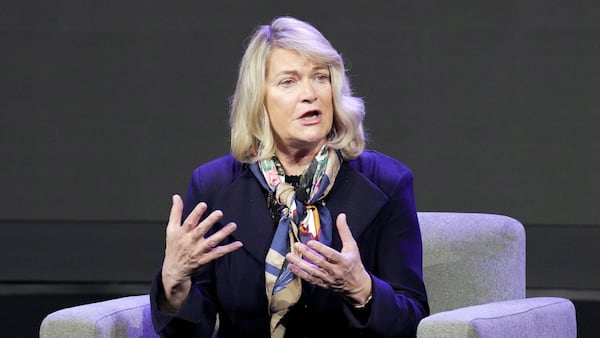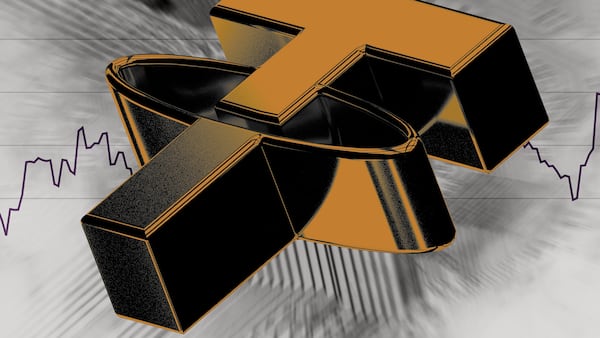- Tether has a fragile relationship with the US banking system.
- Neither the Federal Reserve nor the US Treasury are happy with the way the company is integrated in the broader financial system.
With more than $104 billion in market value, USDT is by far the largest stablecoin in the world.
While the coin’s issuer, Tether, has been plagued for years with rumours that its assets aren’t fully backed, Arthur Hayes, founder of crypto exchange BitMEX, recently wrote that the firm’s weaknesses have nothing to do with the state of its reserves.
Rather, it’s the way it’s integrated into the broader financial system that poses risks to the company.
Tether’s banking partners
According to Hayes, Tether’s vulnerabilities lie in its relationships with the Federal Reserve, the US Treasury, and its own banking partners.
“Tether exists at the pleasure of its poorer TradFi banking partners,” Hayes wrote, using the crypto term for traditional finance.
“Banks’ jealousy and the problems Tether creates for the guardians of Pax Americana’s financial system could instantly spell the end for Tether,” he added.
The first pain point concerns Tether’s five banking partners — Britannia Bank & Trust, Cantor Fitzgerald, Capital Union, Ansbacher, and Deltec Bank and Trust.
The issue, according to Hayes, is that none of these banks possess master accounts at the Federal Reserve. That means they must each use a correspondent bank to move Tether’s US dollars across the financial system.
And while Tether’s banking partners are comfortable with serving crypto businesses like Tether, their correspondent banks may not feel the same way.
“Sometimes certain crypto clients are offboarded from the smaller banks at the behest of the correspondent bank,” Hayes wrote. “If the smaller bank doesn’t comply, they lose their correspondent banking relationship along with the ability to move dollars internationally.”
In other words, these correspondent banks could pressure Tether’s banking partners to drop the company — which, in turn, would exclude Tether from the financial system.
The Federal Reserve
Tether also acts as a fully reserved bank, Hayes said, because it takes US dollar deposits, issues USDT coins in return, and doesn’t loan the deposits.
But the US central bank doesn’t like fully reserved banks, according to Hayes. That’s because they’re expensive: The Federal Reserve pays interest on the banking system’s reserves to incentivise fractional banks — banks that do loan some of their deposits — to not lend too much, with the aim of avoiding another banking failure like in 2008.
While Tether cannot deposit directly with the Federal Reserve, it has access to a similar program through money-market funds. The firm has over $80 billion in money-market funds and Treasury bills.
The interest rate it receives on these is close to the federal funding rate, which now sits in a range between 5.25% and 5.5%.
Put differently, the Federal Reserve is paying Tether billions of dollars for simply processing USDT deposits and redemptions.
“Tether is arbing the Fed. And the Fed no likey,” Hayes said. “If [correspondent] banks drop Tether for some reason, the Fed will do nothing to help.”
The US Treasury
The US Treasury isn’t too keen on Tether either, Hayes said, because Tether’s Treasury bill holdings are huge.
Tether was among the top 22 largest holders of US debt in September — ahead of other nations like the United Arab Emirates, Spain, Mexico, and Australia, according to Tether CEO Paolo Ardoino.
And with the US Treasury market’s liquidity in decline, a smaller amount of selling would be needed to upset the market.
“If Tether had to quickly sell down its holdings for whatever reason, it could cause chaos for global bond markets,” Hayes said.
The Treasury would likely step in to make sure Tether is able to unwind its positions in an orderly way should correspondent banks decide to cut it off, Hayes said.
“But what Yellen certainly won’t do is help Tether find another long-term banking partner,” he added, referring to US Treasury Secretary Janet Yellen.
Hayes’ fund, Maelstrom, is a founding advisor to Ethena Labs — a crypto firm that launched its own stablecoin in February.
Tether didn’t respond to requests for comment.
Crypto market movers
- Bitcoin dropped 1.5% to trade at $69,660 on Friday.
- Ethereum followed with a 1.7% drop, as it changed hands for around $3,500.
What we’re reading
- Binance slammed with $35m money-laundering charge in Nigeria — DL News
- Bitcoin rally drove MicroStrategy and Coinbase during Q1, but risks lie ahead — DL News
- Sam Bankman-Fried shows little remorse as he is sentenced to 25 years for $11bn FTX crypto fraud — DL News
- BlackRock’s Larry Fink confident about a spot Ether ETF — even if the crypto is deemed a security — DL News
- Is Sam Bankman-Fried Really Expected to Pay Off an $11 Billion Judgment? — Unchained
- Tether (USDT) Leads Cryptocurrencies In Illegal Transactions: TRM Labs — Milk Road
Tom Carreras is a markets correspondent at DL News. Got a tip about crypto markets? Reach out at tcarreras@dlnews.com









